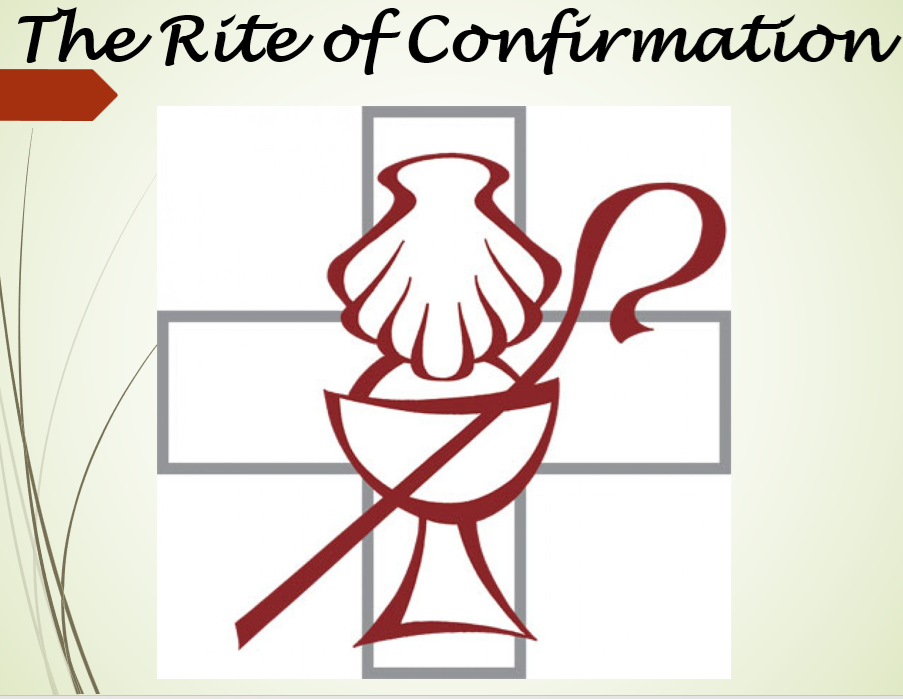
Text: Psalm 81:1-10
Theme: “Hear, O my people, while I admonish/testify/warn you!” (v.8)
___________________________
Intr – We read together Psalm 81 today, and even though it is the psalm assigned for this Sunday with or without confirmation, it seems fitting for our special day today. The psalmist writes: “Sing aloud to God our strength; shout for joy to the God of Jacob! Raise a song; sound the tambourine, the sweet lyre with the harp. Blow the trumpet at the new moon, at the full moon, on our feast day.” The author makes reference to the past acts of God. As usual in the Old Testament, when you remember what God has done in the past, you have every reason to praise Him and celebrate.
That is our case today too. We have three young ladies professing and confirming their faith in Christ as their Savior. As we look over our shoulders at the past two years, we see God’s actions in their lives and their families. Not only during Confirmation retreats and online lessons but also in the way the Holy Spirit acted through it to bless the families in their daily lives.
As we read the Psalm a bit further, we see that it is even more connected to our celebration. Verse 8 reads: “Hear, O my people, while I admonish you! O Israel, if you would but listen to me!” That’s precisely the main objective of the entire Confirmation endeavor. Actually, this is at the center of our Christian life, not only each Sunday here at church but as we walk daily guided by His hand: “Hear, O my people…if you would but listen to me.”
I investigated several possible translations for the Hebrew verb “admonish,” and some of them couldn’t be more fitting:
Testify – “Serve as evidence or proof of something’s existing or being the case.”
Admonish – “Warn or reprimand someone firmly; advise or urge (someone) earnestly; warn (someone) of something to be avoided.”
Warn – “Inform someone in advance of an impending or possible danger, problem, or other unpleasant situation; give someone forceful or cautionary advice about their actions or conduct.”
This points to a fact: when we hear the Lord saying in the second part of verse 8: “If you would but listen to me,” we are dealing with what learning the Word of God is all about: the first thing is not to talk, but to listen; it’s not to say what it means to me (because it can be too subjective sometimes) but to listen to the meaning of the text; it’s not to apply it the way I think it should be applied but the way the Lord intended it to be used. It all flows from hearing the Lord in all those senses – with hearing meaning “paying attention to His Words,” even if you have partial or complete hearing loss.
Now, what do you think? Did our Confirmands hear the Lord, while He admonished, testified, and warned them? Well, why don’t we verify it? Let’s have them share with us God’s teachings as they’ve learned them along the way. We can’t cover the entire curriculum today, even though it would be profitable for all of us to have a good review of the six parts of the Catechism. But they will help us with three important themes: God, Prayer, and the Lord’s Supper.
1 – THE APOSTLES’ CREED
The Catechism starts with the Ten Commandments, what we should do but fall short from. It’s God’s law, showing us the sinners that we are. After we hear who we are, what do we need to hear then? We need to hear about who God is and who He makes us to be. Therefore, the next thing in the Catechism is the Apostles’ Creed. What does it say about God and His relationship with us? Olivia Reilly will help us here.
(reads her essay)[1]
The Apostles’ Creed is the easiest, shortest, simplest way we all have to answer to anyone who asks us: “So you are a Christian, right? A Lutheran Christian. What is this that you guys believe after all?”
2 – LORD’S PRAYER
While on earth, Jesus taught us how to pray. This is the perfect prayer. Kaila Woo will bring us a good reminder about the Lord’s Prayer and the importance of prayer:
(reads her essay)[2]
Whenever you think you are lacking words to talk to the Father – and even when you do -, don’t hesitate to use it. There’s no more complete prayer than the one Jesus Himself taught us.
3 – HOLY SUPPER
The sixth and last part of the Catechism is Holy Communion, bread and wine, body and blood. Today is the first time our Confirmands will receive it. Hailey Burke will share with us what the Sacrament is about.
(reads her essay)[3]
Today, we celebrate the life of our three Confirmands who confess with their own mouths that Christ is their Savior, Redeemer, and Friend. But we all can do the same. As they confess their faith, we can do the same in our minds and hearts. We can remember our Baptism, remember our learning process, not only in Confirmation but throughout our lives. Above all, we can all remember and pay attention to the words of our Lord in Psalm 81: “Hear me while I admonish you.”
There will be times in your life when you will be tempted to think differently from this. Something like: “Why would you listen to God through the Church? It is for old folks who like to keep tradition. Today things are different. You gotta listen to such and such folks; those are the guys/girls who have got it together.” In other words, why should you listen to God saying our theme today, “Hear, O my people”?
Because who you listen to matters. And it matters a lot, for it will definitely have influence in your life. [4]
I wanted to share with you an excerpt of a video experiment made by National Geographic as related by a Brazilian personality. (Shows video).
The video shows a lady who missed 10 out of 10 free throws. Then, she is cheered up by people while she is blindfolded. When it is removed, she tries another 10 shots and makes 4 of them! The same is done with a skilled guy who made 9 ouf of 10 shots, but he in turn is booed down by the crowd while blindfolded. Now, he tries again and misses most of 10 free throws. All in 10 minutes! If 10 minutes can already influence you, talk about four hours a day, or six days a week, or year after year?
Jesus is the best influence we can have. Being close to Him and his Word influences us in our life and keeps us in His path. And when we stumble and fall for other influences, he is ready to receive us back in repentance and faith, so that we go back to hearing His Word.
And remember that God’s Word doesn’t only warn you or exhort you, which may sound like God is always mad or angry. Remember the different meanings. The Word of God is profitable for teaching, for correction, for warning, and for testifying. The word encourages you, strengthens you, and keeps your faith alive. Above all, the Word of God, through Christ, saves you and takes you home to live with Him eternally.
Conclusion: Sometimes we hear things like, “I go only by my own opinions,” or “You have to think with your own mind and have your own thoughts.” While it’s important to learn, grow, and articulate our thoughts, we must acknowledge that we are always influenced by what we hear, read, and watch. That’s why we emphasize the advice from Psalm 81 today: “Hear, O my people, while I admonish you! O Israel, if you would but listen to me!” This guidance, from the Lord Himself, influences our faith and life, our thoughts, and actions. It anchors us not just in this life but into eternity.
__________________________________
[1] My confirmation essay is on The Apostles’ Creed. The Apostles’ Creed is a statement of faith that is central to the beliefs of Christians worldwide. It declares our belief in God the Father, Jesus Christ, and the Holy Spirit, as well as the essential aspects of the Christian faith.
In the Apostles’ Creed, we profess our faith in the Triune God – God the Father, who created all things; Jesus Christ, His Son, who came to save us; and the Holy Spirit, who guides and empowers us. This belief in the Trinity is fundamental to our understanding of God and His work in the world.
As part of my exploration of the Apostles’ Creed, I have reflected on the sacrament of Baptism. Baptism is a sacred ritual where we are washed with water and become members of the family of God. It is not simply a symbolic act, but a powerful means of grace where we are united with Christ and receive the forgiveness of sins.
I have also learned that there is no age limit for Baptism, as Christ’s family is open to all. Infant Baptism is common in the Lutheran tradition, emphasizing the importance of being part of God’s family from a young age. My own Baptism at Trinity Lutheran in Richmond, BC has been a meaningful experience, even though I may not remember it. It marks the beginning of my journey in the Christian faith and my commitment to following Christ.
Through Baptism, we receive regeneration and God’s promise of salvation. Regeneration is the work of God in giving us new life, while God’s promise of salvation assures us of His love and grace. These gifts are precious reminders of God’s faithfulness and our identity as His beloved children.
In conclusion, the Apostles’ Creed and the sacrament of Baptism are essential aspects of my faith journey. They remind me of God’s presence in my life, His promise of salvation, and the importance of being part of His family.
[2] Hi, my name is Kaila and today I’ll be talking about the Lord’s Prayer. When I was younger, I never questioned why I went to church or who God was. It wasn’t until much later that I understood the reason myself and others are praising God. Something I’ve always understood is prayer. My mom always taught me to pray when I was scared, sad, or ever needed guidance, so I did. But one prayer that I’ll never forget is the Lord’s Prayer.
This prayer came about when one of the disciples asked Jesus how to pray. His response was what we know now as the Lord’s Prayer. This prayer is the model for Christians to pray, while we trust that He will always listen and answer our prayers. Although it’s a format that we can follow to pray, there are also some other meanings that we can pull from it that can help us learn and understand what Jesus’s intentions were. Knowing this, to me the Lord’s Prayer is all about forgiveness. It makes me understand why we need to forgive people and it encourages me to use my faith to do good in the world, as Jesus demonstrated to us. The overall purpose of praying is because it shows trust. It’s like a present from God to us as it is through faith in Christ that we can talk to God with our honest thoughts, questions, and problems.
To conclude, the point of the Lord’s Prayer is to represent how a “perfect” prayer would look like as it was taught by Jesus himself. Different people can find different meanings and connections towards it, and that to me is why I feel it’s such a special prayer to remember.
[3] My name is Hailey Burke. Holy Communion may not seem like much, but it is extremely important to Christians. Celebrating Holy Communion marks the story of how Jesus gave Himself completely to give us forgiveness and a new life, a new start and a fresh relationship with God found in 1 Peter 3:18. The bread we receive is our Lord Jesus Christ’s body and the wine His blood that He shed on the cross so we could have eternal life with Him in heaven.
I have been receiving the blessing at the Communion rail while my parents received the Lord’s Supper since I was a child. Whoever believes in the words “Given and shed for you” has forgiveness for their sins. You should be baptized into the faith and follow it. Anyone who is taking Communion must be sorry for their sins and must repent of their sins. Otherwise, they should not partake of it until they are sorry for them and ask for Jesus’ forgiveness.
We receive the wine by goblet or an individual cup by either kneeling at the altar rail, standing, or even in a hospital bed. It’s all the same to Jesus as long as we repent for our sins, believe in Him, and wish to be with Him one day.
[4] Some other thoughts to consider:
_Why would you exchange the Scriptures for other teachings? If, like some say, the Bible is just the word of men, why exchange it for words of other imperfect people, since the Bible has been around quite a while proving itself to be true and useful time and time again?
_Another aspect: We are in sort of a “feel it” generation, so if you come to church, or if you try to feel God with you during your week and you just can’t feel anything special, don’t lose heart. Just because you are not feeling it, doesn’t mean it’s not happening; doesn’t mean that it is not true. Don’t throw it all away to change it for “good feeling” stuff. Think of the food you eat every day: even though you don’t know how it nourishes your body, even though you don’t feel a super duper something every time you sit down to eat, doesn’t mean you are not being nourished. The Word of God does the same, and even more. As long as you are near to it, hearing it, receiving it, you are being nourished by His love to stand still and strong in face of the challenges life will present you;
AI Image generated with Gencraft






